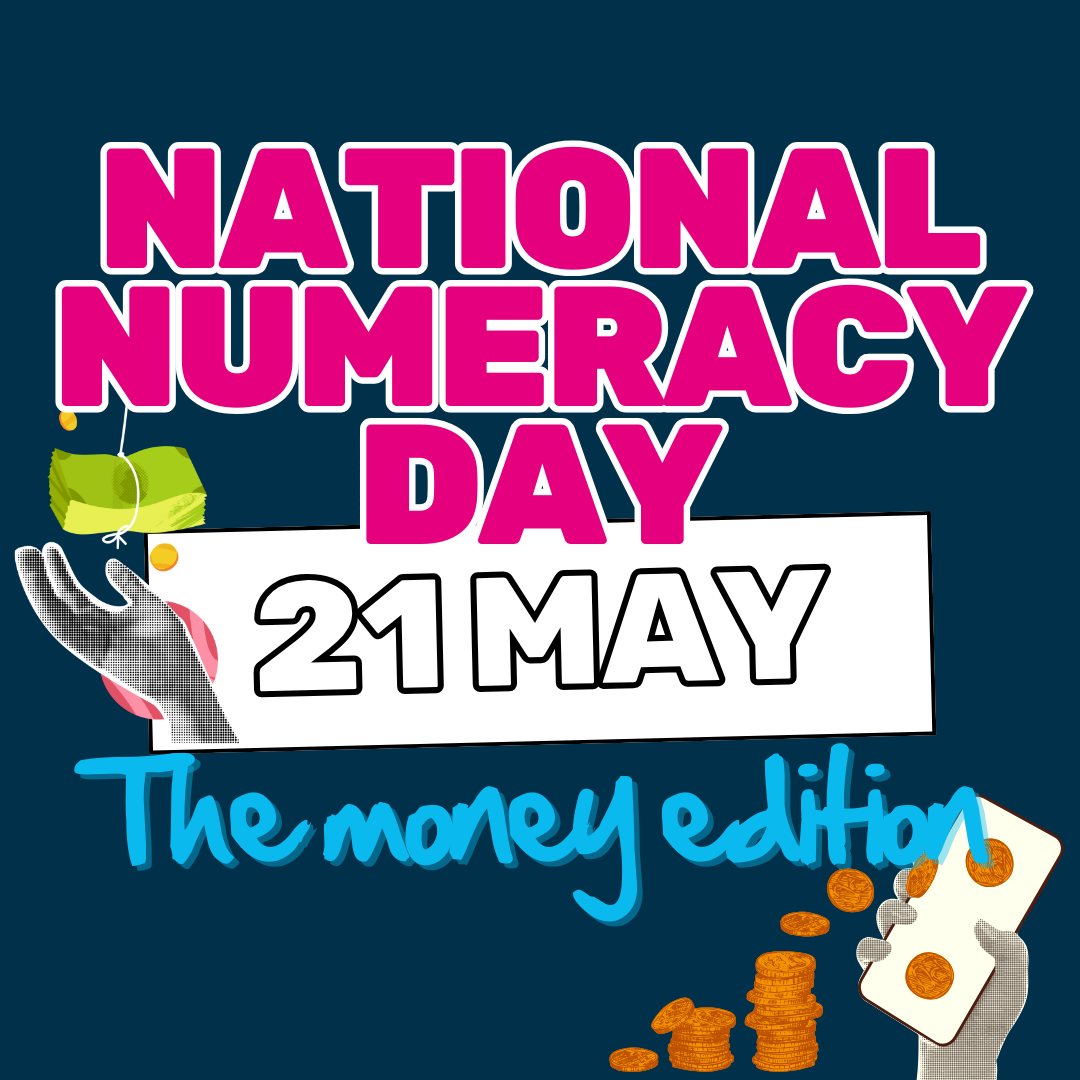She spoke to National Numeracy’s National Relationship Manager Sally Hilton about how her eyes have been opened to the maths fears people face, how she’s using what she learned within the trust, and her plans going forward to build number confidence at every step of the apprenticeship journey.
So Jackie, you recently completed the Numeracy Champion programme - how did you find it?
Brilliant! I was offered some CPD and knew we'd had lots of enquiries about Functional Skills, because that tends to be the starting point for an apprenticeship. And we know that it's much easier to do Functional Skills prior to starting your apprenticeship. I thought National Numeracy would be a really good place to start, to support people with their maths – and it absolutely was.
“It’s amazing and helps tell a story really efficiently.”
It helped me put in a pathway, showing people how they can start with the National Numeracy Challenge and reach the Essentials of Numeracy, and then move up to doing Functional Skills with a provider external to the trust. It also helped me because I love marketing, so if you give me data or data analysis, it’s amazing and helps tell a story really efficiently. So I loved the statistics that were shown to us within the Champion training.
What were your biggest takeaways from the training?
The biggest takeaway was those stats. How many working adults in the UK do not have a GCSE really shocked me. I've not worked in the NHS for long, and I've come from the arts sector and worked with lots of academics and teachers, so functional skills were never an issue. So, I really wanted find out more about it.
“The other big learning was the fear factor that maths has for a lot of people.”
The other big learning was the fear factor that maths has for a lot of people. I'd never come across that before, because I love maths. So that was like, "Oh, wow, this is a very real thing." And it’s so important to tackle, because if you’re trying to get people onto the Functional Skills pathway then the anxiety is the first thing that needs to be addressed. And I think dyscalculia is also more prevalent than people realise.
How have you used what you learned on the programme?
When I get Functional Skills enquiries now I automatically send people onto the National Numeracy Challenge. I’ve used it myself, which helps when recommending it to people. It’s one of the best platforms I’ve ever used, and it’s a great stepping stone and standard to have before you start Functional Skills.
“It’s one of the best platforms I’ve ever used, and it’s a great stepping stone and standard to have before you start Functional Skills.”
I also recently attended a 10-day bootcamp induction for new Healthcare Assistants and Maternity Support Workers. I was there to speak about different pathways people can take – like Functional Skills, GCSEs and apprenticeships – but for all of them you need maths, so we also introduce the National Numeracy Challenge, and the Essentials of Numeracy. People were quite excited about it, and to be speaking about career development. I printed the Challenge poster with the QR code that National Numeracy provided and gave it to every single person, and I also have it in my email signature, so they always know where to find it.
Have you found the other resources that we provided useful?
I’ve really engaged with the case studies that you do. One that I really found interesting was about supporting numeracy for staff at Frimley Health NHS Foundation Trust. That showed us that you can bring in numeracy really early on for people that are starting at the trust, as they made it part of their process at the very beginning to make sure people got the Essentials of Numeracy. It was a fundamental for them and I think if more of us do that, it will really help.
“You can bring in numeracy really early on for people. I think if more of us do that, it will really help.”
How will you use what you have learned for your processes in the future?
We’re hoping to make it part of the process so that when we get new staff we can get them signed up to the National Numeracy Challenge before they do their Functional Skills and then onto apprenticeships. So it's just part of the pathway.
What would you say to someone considering doing the National Numeracy Challenge?
I would say sign up to it, get yourself registered. You only have to do 10 minutes at a time, it’s really helpful, and it works around your knowledge and your needs.
Finally, any advice for someone considering becoming a Numeracy Champion?
I want to make really clear that it's not about teaching maths – I think people get concerned about that. Instead you're going to learn all sorts of facts about maths in this country, and the adults who don't have GCSEs in maths when they need it to progress in their career pathways.
“It’s not about teaching maths. It opens your eyes and you gain a lot of knowledge. It's really, really helpful.”
It opens your eyes and you gain a lot of knowledge. It's really, really helpful.






